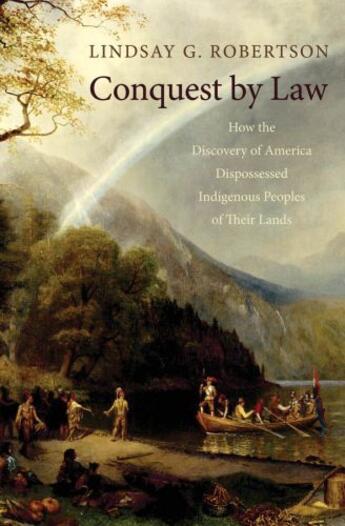-
Nombre de pages : (-)
-
Collection :
(-)
-
Genre :
(-)
-
Thème :
Non attribué
-
Prix littéraire(s) :
(-)
Résumé:
In 1823, Chief Justice John Marshall handed down a Supreme Court decision of monumental importance in defining the rights of indigenous peoples throughout the English-speaking world. At the heart of the decision for Johnson v. M'Intosh was a "discovery doctrine" that gave rights of ownership to... Voir plus
In 1823, Chief Justice John Marshall handed down a Supreme Court decision of monumental importance in defining the rights of indigenous peoples throughout the English-speaking world. At the heart of the decision for Johnson v. M'Intosh was a "discovery doctrine" that gave rights of ownership to the European sovereigns who "discovered" the land and converted the indigenous owners into tenants. Though its meaning and intention has been fiercely disputed, more than 175 years later, this doctrine remains the law of the land. In 1991, while investigating the discovery doctrine's historical origins Lindsay Robertson made a startling find; in the basement of a Pennsylvania furniture-maker, he discovered a trunk with the complete corporate records of the Illinois and Wabash Land Companies, the plaintiffs in Johnson v. M'Intosh. Conquest by Law provides, for the first time, the complete and troubling account of the European "discovery" of the Americas. This is a gripping tale of political collusion, detailing how a spurious claim gave rise to a doctrine--intended to be of limited application--which itself gave rise to a massive displacement of persons and the creation of a law that governs indigenous people and their lands to this day.
Donner votre avis














